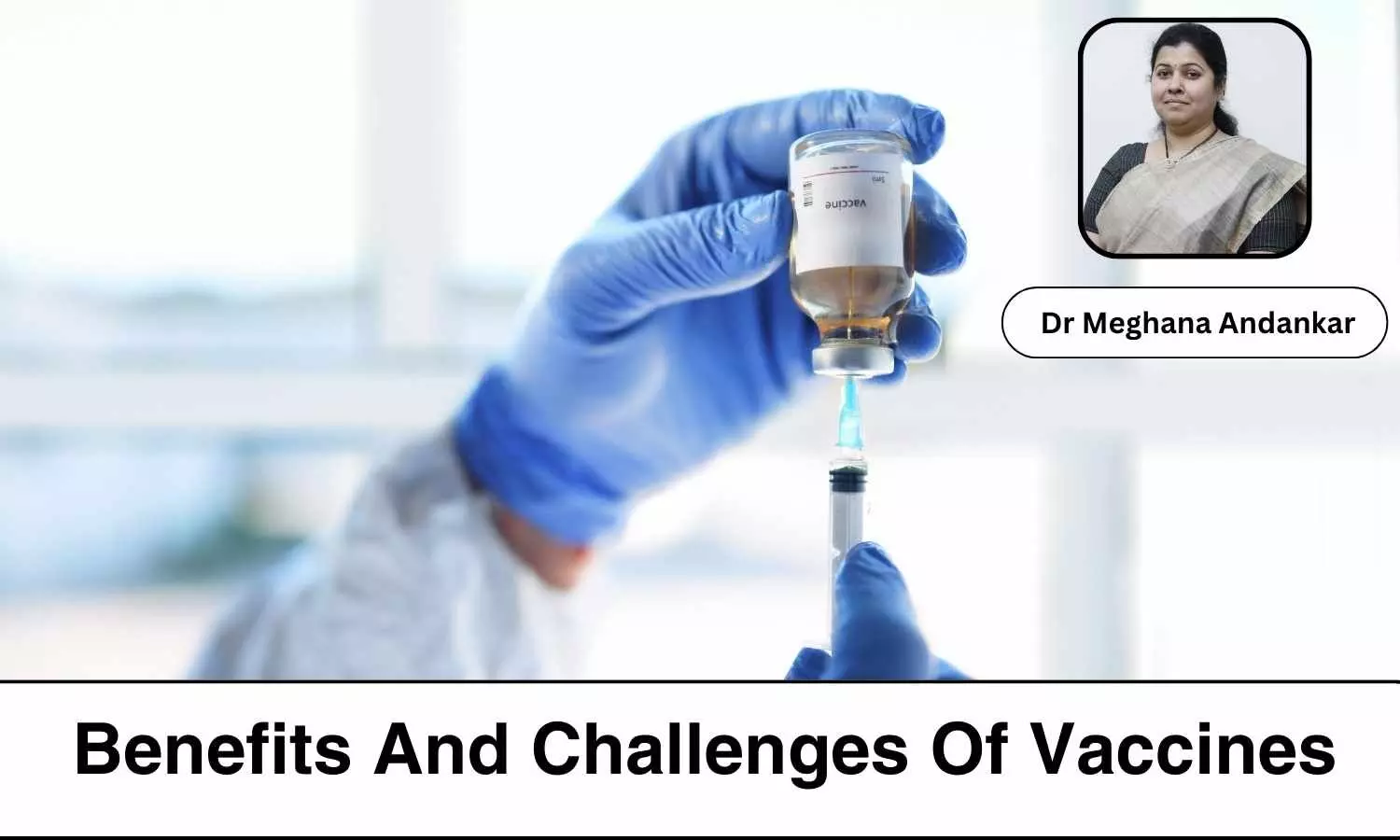Navigating Vaccines: How They Help And What Challenges They Face? – Dr Meghana Andankar

Introduction
Vaccines are
like superheroes for our bodies. They protect us from dangerous diseases and
have made our lives much healthier. But sometimes, even superheroes face
challenges. Let’s explore how vaccines work, what amazing things they’ve done,
and the problems that still need to be tackled.
How Vaccines
Help?
Picture vaccines
as tiny teachers for our immune system. They contain weakened or killed
versions of germs that cause diseases. When we get vaccinated, our body learns
to recognize these germs and builds defences against them.
So, if we ever come
across real germs, our body can swoop in and defeat them before they have a
chance to harm us. It’s like having a secret weapon inside us, ready to spring
into action whenever needed.
Vaccine
Success Stories
Vaccines have
achieved some incredible victories in the battle against diseases. One of their
biggest wins was wiping out smallpox, a deadly disease that once haunted
humanity. Thanks to vaccines, smallpox no longer threatens us.
Vaccines have
also come close to eliminating other diseases like polio, measles, and rubella
in many places around the world. Because of vaccines, fewer people get sick,
and fewer lives are lost to these once-deadly diseases.
Challenges
Vaccines Face
Vaccine
development encounters formidable challenges, particularly with diseases prone
to mutation. Failure to adhere strictly to the vaccine production process can
precipitate disease outbreaks. The complexities of maintaining the cold chain
during storage and transportation further exacerbate these challenges.
Despite
concerted efforts, the scientific community is yet to develop a vaccine for
HIV. Furthermore, vaccines come in two forms: live and dead. Improper
administration of live vaccines can inadvertently induce disease in recipients.
Tragically, instances of children succumbing to vaccination underscore the
gravity of this issue.
Facing New
Threats
Vaccine
development faces daunting challenges, especially with diseases prone to
mutation like swine flu and bird flu. Strict adherence to the vaccine
production process is essential to prevent disease outbreaks. The intricate
logistics of maintaining the cold chain during storage and transportation
further complicate matters.
Despite extensive efforts, vaccines for diseases
such as HIV remain elusive. Moreover, vaccines must be produced in record time
due to the emergence of new diseases like COVID-19 and its variants.
Although
scientists have developed COVID-19 vaccines at an unprecedented pace, achieving
widespread vaccination has proven difficult. This inequality in access hampers
global efforts to curb the virus’s spread.
Looking to
the Future
Emerging
technologies, like nanoparticle-based vaccines or patches, offer potential for
more convenient and effective vaccination methods. Additionally, there’s a
growing commitment to ensuring fair access to vaccines worldwide and better
preparation for future outbreaks. These combined efforts aim to improve
vaccines and promote global health.
Conclusion
Vaccines have
done amazing things for our health, but they still have work to do. By fighting
vaccine fears, tackling new diseases, and embracing new technology, we can keep
vaccines as our trusted protectors against dangerous diseases. Let’s keep
supporting the superheroes of our immune systems!



